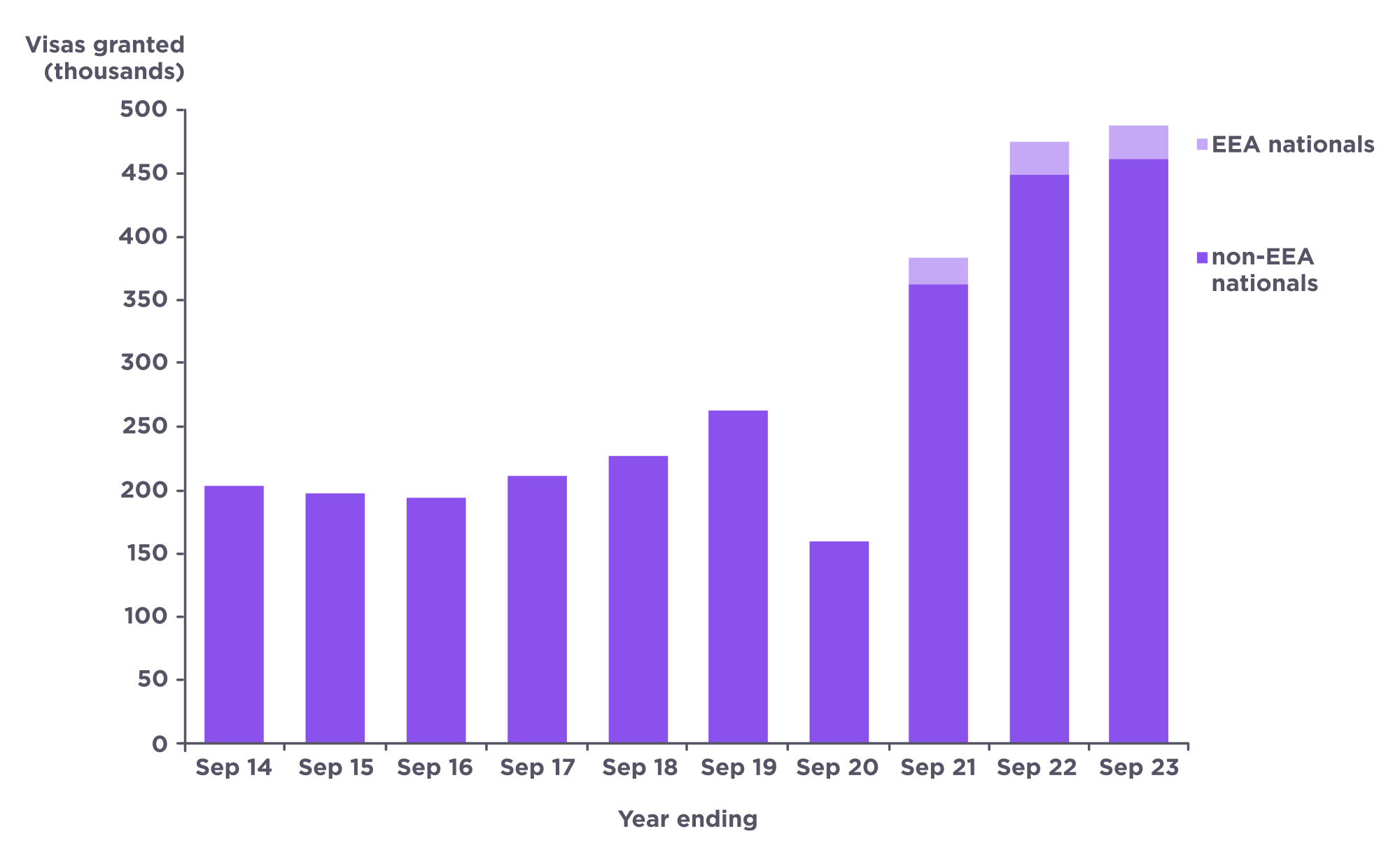Deciphering the Complexity of UK Visa Requirements
Recent figures from the UK's Higher Education Statistics Agency reveal a continuous rise in international student enrolment at UK universities, with a significant 12% increase observed in the 2020/2021 academic year alone. This upward trend emphasizes the importance of understanding the UK's visa regulations for a smooth transition into British academic life. In this article, we offer comprehensive guidance to prospective students on obtaining a UK student visa.
The UK Student Visa, previously referred to as the Tier 4 (General) Student Visa, is a crucial requirement for non-EU international students seeking to pursue full-time educational programs in the United Kingdom.

Which individuals require a UK Student Visa?
After Brexit, significant changes were implemented regarding who requires a UK Student Visa. As of January 1st, 2021, students from EU/EEA member countries, including Switzerland and Lichtenstein, who previously didn't need a visa for courses lasting over six months, must now obtain one. This adjustment aligns with the updated UK immigration policies post-Brexit. However, individuals who acquired settled or pre-settled status through the EU Settlement Scheme before January 1, 2021, or are Irish citizens, are exempt from the student visa requirement.
What is the process for obtaining a UK Student Visa?
- Secure an offer from a licensed UK educational institution to obtain a UK Student Visa.
- Obtain a Confirmation of Acceptance for Studies (CAS) from the institution, which is necessary for the visa application.
- Provide evidence of financial stability to cover course fees and living expenses.
- Demonstrate English language proficiency through exams like SELT.
- Obtain parental consent if under 18 years old.
- Submit visa applications up to six months before the course start date if outside the UK, and three months before if already in the UK.
- Processing times vary, typically taking three weeks for external applications and eight weeks for internal ones.
Eligibility for a UK Student Visa entails meeting criteria set by UK Visas and Immigration. This section outlines these requirements, including academic qualifications, financial proofs, language skills, and necessary documentation for international students planning to study in the UK.
Course Requirements
- Single Course Selection: Applicants must apply for a visa for one primary course of study, with exceptions for pre-sessional courses and certain roles such as Student Union Sabbatical Officer.
- Eligible Courses: Accepted courses encompass those at degree level or higher, below degree level, part-time courses, overseas higher education equivalents to UK degrees, and specialized qualifications like ACCA.
- Academic Technology Approval: Some courses, especially those focusing on advanced technology, mandate an Academic Technology Approval Scheme (ATAS) certificate.
- Approved Qualifications: Courses should be validated by an institution with a Royal Charter or awarded by a UK Recognized Body, adhering to specific regional framework levels depending on the UK country.
Financial Criteria
1. Standard Financial Requirement: Evidence of financial stability to cover course fees and living costs throughout the course duration is essential.
2. Specific Fund Requirements: For London-based studies, applicants must demonstrate additional funds compared to those studying elsewhere. In London, this includes outstanding course fees plus £1334/month for up to 9 months, while outside London, it's outstanding course fees plus £1023/month for up to 9 months.
English Proficiency Requirements
1. CEFR Levels: CEFR Level B2 is necessary for Bachelor’s Degree level or higher, while CEFR Level B1 is sufficient for pre-sessional or below Bachelor’s Degree level courses.
2. Secure English Language Test (SELT): If opting for a SELT, the CAS must include details such as the test provider’s name, unique reference number, and component scores.
Academic Progression and Study Duration
1. Progression Requirements: Visa extensions mandate evidence of academic advancement to a higher level.
2. Maximum Study Period: Typically limited to five years from age 18 for degree-level courses, with exceptions for certain fields like medicine, architecture, and postgraduate medical programs.
Visa Terms and Entry Conditions
1. Entry Requirements: Mandatory pre-arrival entry clearance and a tuberculosis medical certificate for applicants from select countries.
2. Visa Conditions: These entail no entitlement to public funds, stipulated work and study limitations, and variable visa durations.
3. Work Regulations: Permissible work hours on the UK student visa hinge on the study level, permitting 20 hours per week for degree level or higher during term time.
Documents Needed for UK Student Visa
Required Documents for UK Student Visa Application:
1. Proof of Identity and Travel Documents: Current passport or valid travel documentation, including a blank page for the visa.
2. Confirmation of Acceptance for Studies (CAS): Reference number issued by the education provider upon acceptance.
3. Financial Proof: Evidence of financial stability to cover tuition fees and living costs.
4. Academic Technology Approval Scheme (ATAS) Certificate: Required for certain science and technology courses at PhD or Master’s level.
5. Proof of English Language Proficiency: Passing a Secure English Language Test (SELT) or alternative proof for some nationalities.
6. Academic Qualifications: Documents verifying educational background, such as degree certificates or academic transcripts.
7. Parental Consent (for Applicants Under 18): Letter from parents or legal guardians confirming consent for the visa application and study plans.
8. Health Documents: Medical certificate proving freedom from tuberculosis for applicants from specified countries.
9. Additional Documents for Specific Situations: New CAS for Doctorate Extension Scheme applicants, and specific documents for student union sabbatical officers or postgraduate doctors/dentists on recognised foundation programs.


